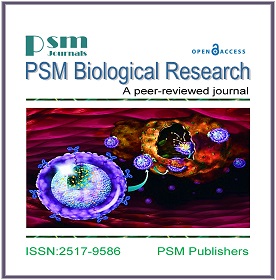In Vitro Improved Production of Monoclonal Antibody against Zearalenone in Supplemented Cell Culture Media
Keywords:
Monoclonal antibody, zearalenone, hybridoma technology.Abstract
Zearalenone (ZEN) is a phenolic resorcylic acid lactone, produced by several Fusarium species causing reproductive disorders such as abortion and stillbirth in livestock resulting from hyperestrogenism. A monoclonal antibody (mcAb) specific to zearalenone was produced from hybridoma cell line 5A8. It was generated by the fusion of Sp2/0 myeloma cells with spleen cells isolated from Balb/c mice with highest-titer (1: 64,000, v/v). The mice were immunized intraperitoneally with zearalenone–cationic bovine serum albumin (ZEN-cBSA). ZEN-cOVA conjugate was used as coating antigen to test titer of mice serum. Hybridoma cells were grown on cell culture media supplemented with carbohydrates (CHO) respectively. Monoclonal antibody produced by hybridoma in vitro belongs to the immunoglobulin subtype IgG1 with specific antibody titer 0.70. The most effective culture medium for hybridoma clones was supplemented with maltose that achieved best titer at 1.473 as determined by icELISA. The use of supplemented cell culture media is an effective approach to improve the production of monoclonal-antibody, better hybridoma growth and viability.
Downloads
Downloads
Additional Files
Published
Issue
Section
License
Copyright (c) 2018 PSM

This work is licensed under a Creative Commons Attribution-NonCommercial-NoDerivatives 4.0 International License.




